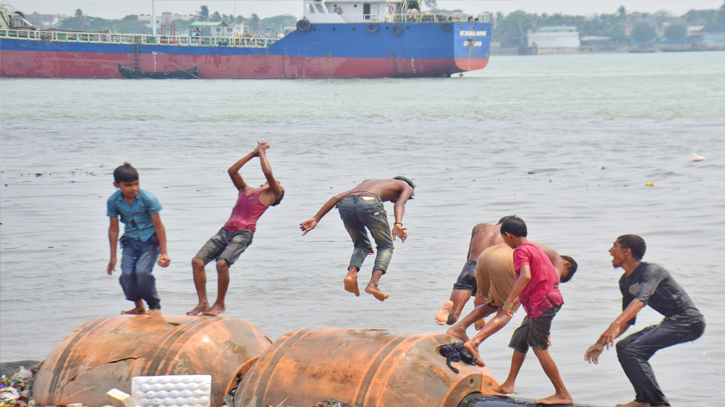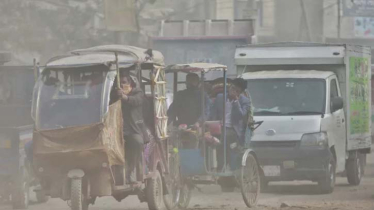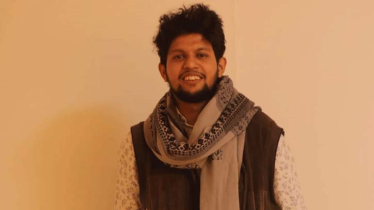
Photo: Messenger
The Directorate General of Health Services (DGHS) in Bangladesh, with UNICEF's support, on Sunday (5 May) launched the National Guidelines to protect children and vulnerable populations, including pregnant women from heat-related health risks.
This event marks a critical step in keeping children safe as Bangladesh is increasingly buffeted by the impacts of climate change.
In alignment with UNICEF's Healthy Environments for Healthy Children global program framework, launched in 2021, the National Guidelines, jointly developed by DGHS with UNICEF support, underscore the importance of a primary healthcare approach in protecting vulnerable populations from the adverse effects of climate change.
These National Guidelines, developed in collaboration with experts from health and other sectors, provide a comprehensive framework for responding effectively to heat-related health risks.
These risks, according to UNICEF reports, include that the odds of a preterm birth rise by 5 per cent per 1°C increase in temperature, and by 16 per cent during heatwave versus non-heatwave days, demonstrating that the risk of a preterm delivery is higher during a heatwave – i.e., greater exposure and severity result in greater risk.
The preterm birth rate in Bangladesh (16.2%) is the highest in the world and this is further aggravated by heatwaves.
In addition, the guidelines include UNICEF’s B.E.A.T the Heat framework, based on the English acronym: 1) BE AWARE of heat stress and protect yourself; 2) EASILY IDENTIFY the symptoms of heat stress; 3) ACT IMMEDIATELY to protect yourself and others; and 4) TAKE the person to a health facility if an individual is showing serious symptoms.
These directives are aimed at raising public awareness and fostering mass participation in heat-related health initiatives.
These guidelines will be disseminated widely through various government ministries, mass media channels, and grassroots organizations to ensure broader community and public engagement.
"Every child has the right to a healthy environment, and we all have a role to play. By addressing heat-related illnesses and prioritizing skills for healthcare professionals, we can help pave the way for a healthier and brighter future for children in Bangladesh," emphasized Sheldon Yett, Representative of UNICEF in Bangladesh.
According to recent projections from UNICEF and as a stark reminder of climate change impact, by 2050 a staggering 35.5 million children in Bangladesh, 99 per cent of the total child population at that time, are set to face high heatwave frequency - meaning on average 4.5 or more heatwaves per year.
This will be a significant surge from 2020, when just 2.6 million children, representing 5 per cent, were exposed to such risks.
UNICEF estimates that one in three children in Bangladesh, nearly 20 million children, bear the brunt of climate change every day.
Children are victims of extreme weather, such as the current heatwaves, floods, river erosion, sea level rise, and other environmental shocks driven by climate change.
As the impact on children is diverse, UNICEF is also working on supporting the Government in addressing these risks in the education sector.
Last week 30 million children had their classes and learning upended, when all schools were closed in Bangladesh due to the scorching heatwave as temperatures skyrocketed to 40C and beyond.
With technical support from UNICEF, the Directorate of Secondary and Higher Education has organised a workshop with education ministries and directorates to develop a Climate Change in Education framework.
This initiative aims to integrate climate change education into the educational landscape, fostering a generation equipped to tackle environmental challenges.
Extreme heat waves have become increasingly prevalent in Bangladesh, posing significant health risks to its population, particularly during the humid months from April to August.
UNICEF remains committed to supporting Bangladesh in its efforts to combat climate-related health challenges and looks forward to continued collaboration with DGHS, the Ministries of Education, and other partners in building a resilient and sustainable future for every child.
Messenger/Mumu








